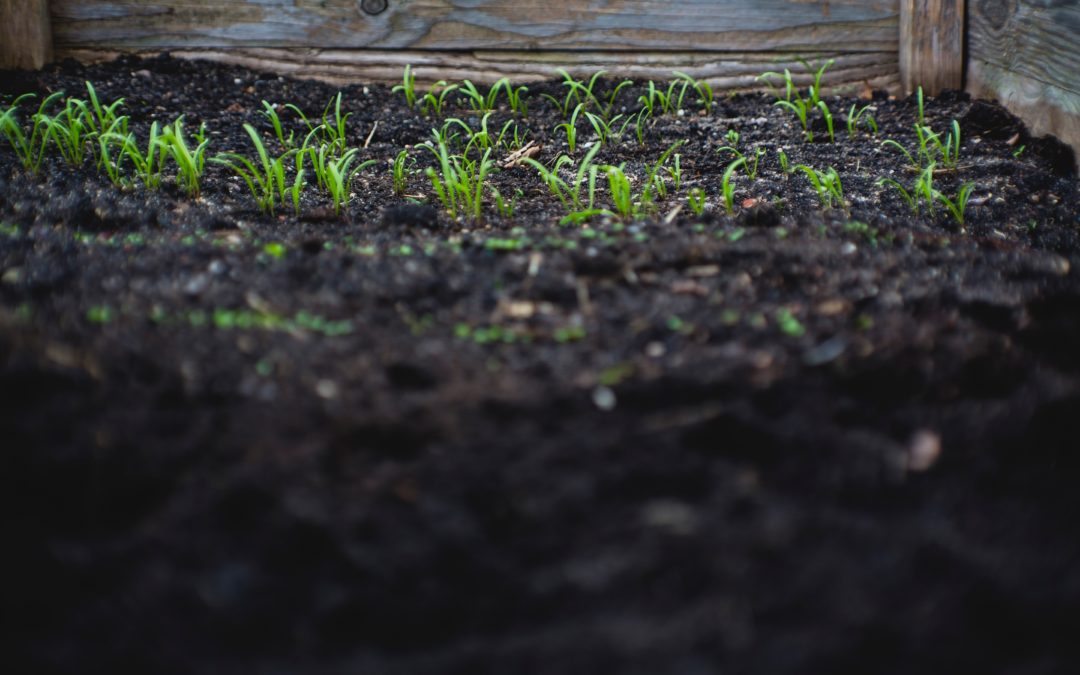Fall with all its vibrant leaf colors is a spectacular time of year, especially in the yard. But often the dropping leaves can create a frustrating problem of what to do when your yard is filled with dead brown leaves. What can you do with all those eyesores that are decaying in your yard? Composting may the answer.
Fall is an excellent time to start composting
Leaves are a great foundation for turning your food waste and yard debris into “black gold” that can be used for planting in the spring and to give nutrients to established outdoor plants.
Did you know that food scraps and yard waste together currently make up about 30 percent of what we throw away? Having a compost pile keeps these materials out of landfills where they take up space and release methane, a potent greenhouse gas. Don’t fret. Composting is pretty easy.
The Types of Composting
There are three types of composting.
- Cold composting
- Hot composting
- Vermicomposting
Cold composting is as basic as it gets. Get a compost bin and throw your kitchen scraps and yard waste and plant material in. Wait. About a year or so later everything will have decomposed into beautiful soil ready for your pots and garden.
Hot composting speeds everything up. Nitrogen, carbon, air, and water feed microorganisms that speed the decaying process. By adding water and some ash and soil to your compost pile and turning it regularly you can have some fully cooked compost in a few months.
Vermicomposting is basically worm farming. You can’t just use any old worms from your garden. You need redworms that often can be found at your local nursery. Feed redworms your kitchen scraps and they do their part by eating and then pooping out nitrogen-rich castings. Don’t get your compost too hot or the worms will revolt!
Composting Recipe
First, get a composting bin from your local hardware store or make your own with chicken wire or old pallets converted into a box with open slats every few inches to keep everything aerated. Now, start your recipe. There are three basic things you should know:
- Add three parts: “browns” – fall leaves, shredded paper, newspaper, paper bags, cardboard, sawdust, dryer lint, pine needles (be careful – don’t add too many needles – keep it to 10%)
- And one part: “greens” – grass clippings, seedless weeds, flower clippings, vegetables, and food wastes, coffee grounds, and filters, tea bags, manure (vegetarian pets only – not cat or dog), eggshells
- Don’t compost meat which attracts pests, fruit peels which can carry pesticides, or diseased or seedy weeds or plants that can create diseased, weedy soil.
Once you have thrown in your ingredients add water, mix your layers and add some soil every 12 inches or so. Keep it wet and aerated by turning it over and adding water to the dry layers every once in a while. Turning is a key ingredient, keeping the microbes active so that they can make compost faster. Now, wait . . . and next spring, black gold!
What You Can Compost
The list of things you can compost is varied.
- Fruits and vegetables
- Eggshells
- Coffee grounds and filters
- Tea bags
- Nut shells
- Shredded newspaper
- Cardboard
- Paper
- Yard trimmings
- Grass clippings
- Houseplants
- Hay and straw
- Leaves
- Sawdust
- Wood chips
- Cotton and wool rags
- Dryer and vacuum cleaner lint
- Hair and fur
- Fireplace ashes
The Benefits of Composting
You might not know it but composting has a lot of benefits to your yard and the environment.
- Enriches soil, helping retain moisture and suppress plant diseases and pests.
- Reduces the need for chemical fertilizers.
- Encourages the production of beneficial bacteria and fungi that break down organic matter to create humus, a rich nutrient-filled material.
- Reduces methane emissions from landfills and lowers your carbon footprint.
Decide what composting method works best for you and your lifestyle and then give it a try. Having compost ready to amend and improve your soil is convenient. Often the native soil of your yard isn’t ideal for the needs of growing plants. Compost at the ready can help create the perfect garden soil that is light and crumbly and holds nutrients and water well so your plants thrive and your yard stays beautiful.
Need Help With Your Outdoor Space?
Greenhaven has vast experience helping homeowners get the yards they love. Contact us about how we can help create your perfect outdoor space.

